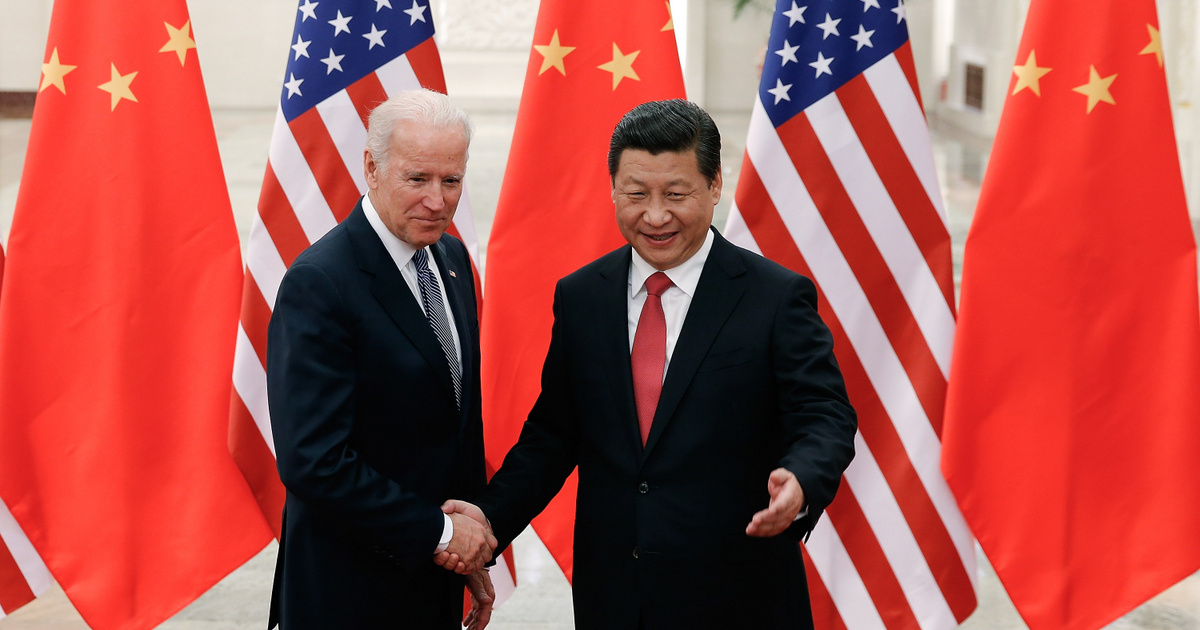China likes to portray itself as a rising global power, and loves to blame the United States for failing to achieve its global ambitions for peace and prosperity. Arab commentators compared the positive atmosphere surrounding Chinese President Xi Jinping's summit in December 2022 in Riyadh, and the most tense meeting between US President Joe Biden with the Saudi leadership in Jeddah five months ago. Al Riyadi newspaper quoted “independent Western sources” as saying that “in the medium term, the region will move from dictates and hegemony to a stage of geostrategic balance and political justice through Chinese influence, which will affect development, based on investments and avoiding conflicts.”
China wants relevant countries to embrace this future. China sees the United States as its main strategic challenge, and everything else pales in comparison.
However, the extent to which this goes is surprising. China's actions — and inaction — over the past four months highlight that despite decades of investment in the Middle East, Beijing's primary regional goal continues to undermine U.S. aspirations. While China has already become a regional player in the Middle East, it is still playing a noticeably self-interested game, the newspaper says. Foreign Policy On its columns john b. AltermanVice President of the Center for Strategic and International Studies.
The starting point for China's interest in the Middle East is energy. The country became a net importer of oil for the first time in 30 years, and accounted for nearly half of the growth in global oil demand during most of the past two decades. During this period, about half of the crude oil China imported came from the Middle East.
Chinese concerns
For China, dependence on the Middle East is a permanent weakness. The United States has been the dominant player in the region's security for half a century, and many Chinese fear that the United States could cut off China's essential energy supplies. Likewise, the Middle East is home to three maritime bottlenecks that are critical to global trade: the Strait of Hormuz, the Bab el-Mandeb Strait, and the Suez Canal. Many Chinese containers bound for Africa, Europe, and even the East Coast of the United States pass through the three channels.
The US Navy is now preparing to protect all of these choke points, but it could even close them if it wanted to.
China's strategy is based on coexistence with the United States rather than confrontation, and persuading countries in the region to expand their relations with China in addition to American relations. Nearly 10 years ago, China announced a “comprehensive strategic partnership” with Algeria and Egypt, and later added Saudi Arabia, Iran, and the United Arab Emirates to the list. It is no coincidence that last August, Beijing succeeded in pressuring the last four countries to join the BRICS bloc (which at the time included Brazil, Russia, India, China, and South Africa) – representing four-fifths of the total expansion. China says it seeks to deepen economic ties throughout the Middle East and promote trade and development with them.
Middle Eastern countries have welcomed China's growing regional role. This is partly because China frees them from Western pressure to liberalize, and partly because China is an economic partner that prefers speed to strict regulation. In addition, China is viewed as a rising global power, and after more than a decade of US presidents talking about Washington's major interests in Asia, it may seem unwise for Middle Eastern countries not to build a strong relationship with China.
China holds the narrative that countries can develop their relations with China in addition to their existing relations with Western countries. This is true in principle, but the issue turns out to be more complex in practice. Western governments accuse that Chinese investments in technology aim to enhance espionage in the region. As a result, Western governments sometimes believe that the use of Chinese technology by regional governments hinders the conclusion of security cooperation agreements.
Chinese experts have strongly criticized the US regional security policy. As a famous Chinese scholar wrote:
China is a victim of regional instability due to reckless US military actions.
Before a meeting in Thailand in January between US National Security Advisor Jake Sullivan and Chinese top diplomat Wang Jie, where security in the Red Sea was on the agenda, Chinese and Iranian officials said China had complained to the Iranian government about its support for international coalition forces. 20 In vain. But it is not clear whether the purpose of such statements is merely to prevent Wang from coming under US pressure, or whether they truly reflect China's inability to influence Iran's behavior.
Taking advantage of the crisis
China was able to exploit the crisis in two ways. The first is to criticize the United States, as it has been able to create a hostile atmosphere among the countries of the Global South for the United States’ role in the Middle East. According to an October editorial in China Daily, the United States is on the “wrong side of history” in Gaza, and “as the world’s only superpower, it should fulfill its global responsibility by helping to avert a crisis.” “Great humanity.” Chinese newspapers have continued to attack US diplomatic efforts as fueling anti-American and anti-Israeli sentiment in the Global South, arguing that US bias towards Israel hinders the achievement of a two-state solution that would fundamentally resolve the conflict.
The second thing China does is take care of its direct economic interests. There is growing demand for Chinese ships, which shipping companies believe will not be attacked by the 2020s. Some ships crossing the Red Sea are reportedly accompanied by “Chinese crews only” to avoid attacks.
In the Middle East, China is demonstrating that its diplomacy is trying to adapt to rapidly changing circumstances. Moreover, he does not show any special inclination to make serious efforts in the hope of achieving mutual benefit. Instead, Chinese officials are withdrawing and looking for marginal ways to advance their own interests at the expense of partners and allies.
This is not the winning logic that China often promotes as its trademark. Now China watches from the sidelines as everyone loses, including itself.
(Cover photo: Chinese President Xi Jinping shakes hands with US Vice President Joe Biden in the Great Hall of the People in Beijing on December 4, 2013. Photo: Lintao Zhang/Getty Images)

Comprehensive analyses, world-changing questions, and visions for the future in one volume.













































